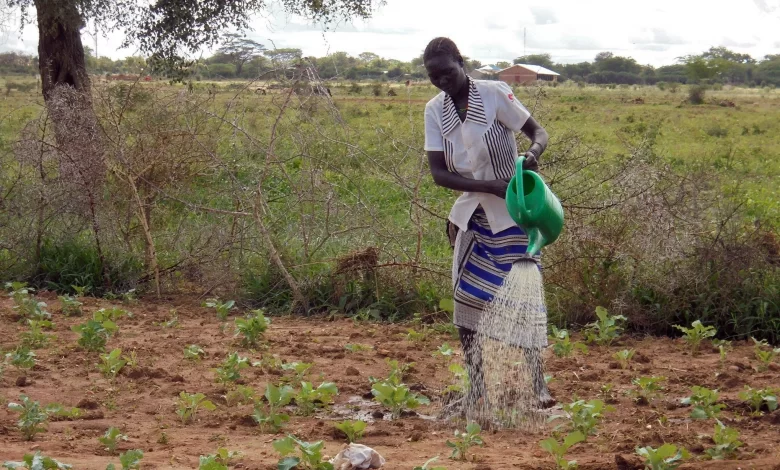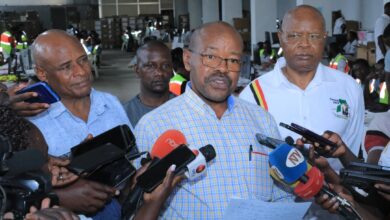Uganda should reflect on urgent climate change commitments ahead of Independence Day
Research from New Climate Economy shows that bold climate action could deliver at least $26 trillion in global economy between now and 2030 and that it could also generate over 65 million new low carbon jobs by 2030.

By Okwi John Peter
As Uganda prepares to celebrate its Independence Day on 9th October this year, it is a good time for Uganda to reflect on its individual, Joint and Global commitments made towards addressing climate change. With climate-related challenges becoming more prevalent and urgent, it is crucial for Uganda to evaluate its climate actions and consider more sustainable practices for the future.
Recalling that on 4th to 6th September 2023; Uganda Joined the Committee of African Heads of State together with other key stakeholders and Government leaders who gathered in Nairobi for the inaugural Africa Climate Summit; on theme “Driving Green growth and Climate finance solution for Africa and world”. Consequently, the joint Climate change Assembly resulted in the formulation of joint Climate Change Declaration for the continent.
One of the key African climate change declarations commitments in regards to climate change was that all African countries should work towards accelerating efforts to reduce Greenhouse Emissions, to align with goals set forth in the Paris Agreement, which calls on parties to make finance flows consistent with a pathway towards low greenhouse gas (GHG) emissions and climate-resilient developments. It further emphasized on the need to abolish fossil fuel subsidies.
Uganda should reflect on long term danger on over dependence on fossil fuels developments. Like many countries, Uganda relies heavily on fossil fuels for energy production and transportation. It should take time and rethink on the impetus in which its biggest East African crude oil Pipeline (EACOP) oil project would have in the future generation of greenhouse gas emissions and on the vulnerability of country to climate change. The 25-year lifetime of the EACOP project is projected to emit atmospherically dangerous 377.6 million metric tons of Carbon dioxide during its construction, operation and refining phase.
This will exacerbate Climate change through a formation of a thick atmospheric blanket of CO2 which keeps re-radiating heat back to earth surface leading to global warming and contravening the global Paris commitment of limiting earth temperatures to 1.5 degrees Celsius.
Cognizant of the urgency that climate crisis is already disproportionately affecting African countries including Uganda and that the continent is more vulnerable to impacts of climate change and warming faster than other regions of the Globe as pointed out in the IPCC assessment report 6 2023, we demand urgent and bold decisions to implement the climate actions in the climate change declaration.
According to the intergovernmental panel on climate change, Limiting the global warming to 1.5 degrees Celsius compared to 2 degrees could result in almost all African countries including Uganda having a GDP per capita at least 5% higher by 2050 and 10% to 20% higher by 2100. Adherences to these commitments have long term benefits for the Economy of the country.
Research from New Climate Economy shows that bold climate action could deliver at least $26 trillion in global economy between now and 2030 and that it could also generate over 65 million new low carbon jobs by 2030.
Uganda should seize the opportunity to transition to a low-carbon economy. Investing in renewable energy, such as solar and wind power, can not only reduce carbon emissions but also provide reliable and affordable energy to its citizens. Additionally, promoting energy-efficient technologies and practices can help conserve energy and reduce the carbon footprint
Furthermore, Uganda should reflect on its land-use practices. Deforestation and unsustainable agriculturalal practices contribute to greenhouse gas emissions and biodiversity loss. Embracing sustainable land management practices, such as reforestation, agroforestry, and organic farming, can help restore ecosystems, improve soil health, and sequester carbon dioxide.
Lastly, Uganda should prioritize international collaboration and support in its climate efforts. Climate change is a global challenge that requires collective action. By actively participating in international climate forums, such as the United Nations Framework Convention on Climate Change, Uganda can contribute to global climate discussions.
As Uganda celebrates its independence, let us not forget the importance of addressing climate change. Reflecting on past actions and committing to more sustainable practices can help protect the country’s natural resources, improve the well-being of its people, and contribute to global climate goals. With coordinated efforts from the government, civil society, and individuals, Uganda can pave the way towards a greener and more resilient future. Happy Independence Day
Okwi John Peter is the Programs Officer at Environment Governance Institute






